Controversial proposals from the BMA on organ donation
 A raft of proposals have been put forward this week by the BMA to increase the number of organs for transplant, including a controversial suggestion to keep dying patients alive solely to harvest their organs, a process known as ‘elective ventilation’.
A raft of proposals have been put forward this week by the BMA to increase the number of organs for transplant, including a controversial suggestion to keep dying patients alive solely to harvest their organs, a process known as ‘elective ventilation’.
The BMA report admits that elective ventilation is ethically contentious. It involves starting ventilation, once it is decided that the patient is close to death, with the specific intention of facilitating organ donation. This system was introduced, with strict controls, in Exeter in 1988 and led to a 50% increase in the number of organs suitable for transplantation. It was stopped abruptly in 1994, however, when the Department of Health advised that the practice was unlawful.
The use of elective ventilation is not intended to be of any benefit to the individual donor but solely to facilitate donation of organs. In fact, it might actually put a donor at risk because, in theory at least, elective ventilation could induce a persistent vegetative state (PVS). The law requires that medical procedures or interventions must be in a patient’s best interests so the justification offered by the BMA, for elective ventilation, is that it would facilitate the wish of someone to donate organs after death, which may be seen as in that person’s best interests or benefit.
Other proposals looked at ‘prompted choice’ and ‘mandated choice’. Anyone who has applied for a new driving licence, or renewed one online, since August 2011 will have answered a question about organ donation. The well-intentioned purpose is to prompt people to make a choice about signing up to the organ donor register (ODR). What is concerning about this specific prompting however, is that there is no option provided to express any objection or refusal to donation. Therefore it is not a real choice, as not all options open to people are included. The only options given are:
- Yes, I would like to register
- I do not wish to answer this question now
- I am already registered on the NHS Organ Donor Register.
A true ‘prompted choice’ would include an additional option:
- ‘No, I would not like to register’
While this method of ‘prompted choice’ may raise awareness of organ donation, and at the same time provide approximate guidance as to the numbers of adults prepared to consider signing up to the ODR, one brief tick box question, situated within a driving licence application, cannot be regarded as representing an informed decision about organ donation.
‘Mandated choice’ would force people, by law, to decide whether they wish to be donors on death or not. This would have to involve the use of some sort of punishment or penalties if an adult fails to make a choice, or refuses to. Not only is there limited evidence of its effectiveness, the BMA is rightly concerned about the coercive nature of forcing people to make a decision at a particular time and the undermining of autonomy.
What about the argument that if people are prepared to accept organs, they should be willing to donate them? The report looked at this, under a system of reciprocity, where those who sign up to donate after death receive priority should they themselves require a transplant. The BMA report rightly does not support this on the basis that it contravenes a central principle in medical ethics that medical care should be provided, and scarce resources allocated, on the basis of clinical need and not on the actual or perceived merit of the patient. Social or moral factors should not be taken into account.
The BMA’s preferred option is a soft opt-out system, as is being proposed for Wales and about which I have written in previous blogs. (This is also known as ‘presumed consent’ however the BMA has now decided it will no longer use this term, presumably because it is so obviously not ‘consent’ at all). Soft opt-out donation would permit doctors to remove organs from any dead patient, unless they had specifically registered a formal objection to it. Families would ‘be involved’ in the decision-making process around donation.
Perhaps I’m being overly suspicious, but it seems to me that what the BMA report cleverly does is propose one or two radical and headline grabbing options such as elective ventilation, which then makes their other proposals appear thoughtfully moderate in comparison.
Yet we should not forget that opt-out legislation, their preferred option, is also fraught with ethical controversies and practical difficulties and is unlikely to make a significant difference to donation rates.
Two articles in Transplantation in January show that presumed consent legislation makes little or no difference to donation rates (no mention of this in the BMA report).
It is ethically problematic, will be costly and practically complex to administer and does not involve real consent, as I’ve said in the previous blogs.
Moreover, there are controversies around the diagnosis and definition of death that are central to this whole debate. In an article for Triple Helix back in 1999 consultant anaesthetist David Hill raised concerns about whether brain stem death is always being accurately diagnosed. He summarised his objections with the transplant scene as follows:
- We are removing organs from people before we would declare them dead for any other purpose
- We are deliberately concealing this from would-be donors and their relatives
- We are failing to obtain properly informed consent – the donor card is inadequate
- We are failing to offer anaesthesia for the operation
A discussion on moral maze this week raised concerns about where this could end. If Janet Radcliffe Richards were to have her way, then we would simply take organs from PVS patients – they could be killed and their organs removed. (So for her, I guess it would not be too great a concern if elective ventilation induced a PVS state). While her views were particularly shocking, even the more moderate contributors and questioners hinted at the fine line between the gift of donation becoming the duty to donate.
By raising these concerns I am not suggesting organ donation is wrong per se. In 2011 there were 7,800 people on the UK waiting list for a transplant. There were 511 deaths of people on the waiting list but this figure may be higher, according to the BMA, perhaps 1,000 people.
A CMF paper by consultant transplant surgeon, Keith Rigg, encourages us to consider what we would like to happen to our organs and tissues after death, and to tell family and friends. A CMF submission to a House of Lords Select Committee explains how organ donation fits within the Christian’s stewardship responsibility and call for sacrificial giving and love. The altruistic gift aspect of donation which arises from fully informed consent fulfils our Christian obligation to love our neighbour as ourself. Christians therefore support the principles of organ donation and transplantation.
But in all the current debates I think we have to be aware of other agendas, to warn about conflicts of interest and to ask for openness and honesty in definitions of death and ‘consent’. Our support for organ donation is based on it being an altruistic free gift in a context of fully informed consent that is not undermined through any hint of financial incentives or elements of felt duty.

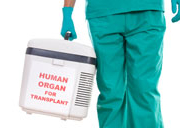
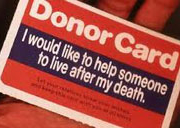

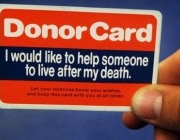
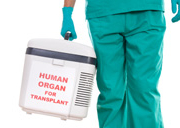
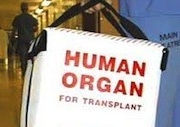
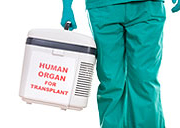
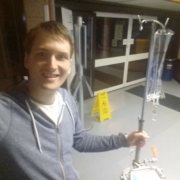



Leave a Reply
Want to join the discussion?Feel free to contribute!